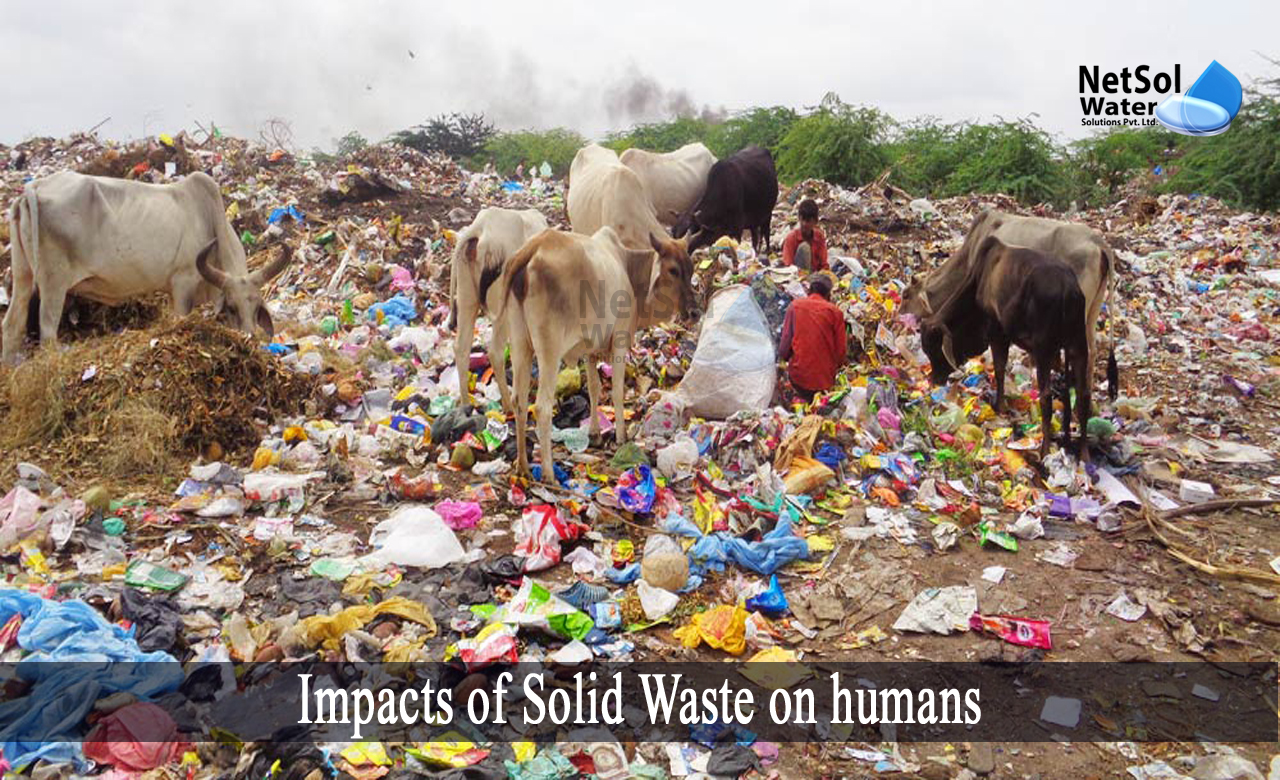All forms of contamination, including soil, water, and air, are brought on by improper MSW disposal and management.
Surface and ground water sources are contaminated by solid waste that is dumped carelessly. MSW causes drain jams in metropolitan areas, which results in stagnant water that encourages bug breeding and floods during rainy seasons. Urban air pollution is substantially impacted by the uncontrolled burning of MSW and inappropriate incineration.
Organic waste decomposition in landfills produces greenhouse gases, and untreated leachate contaminates nearby soil and water sources. Inappropriate MSWM also causes problems with health and safety.
People may be exposed to disease causing organisms and other toxins when they bathe in, irrigate their food with, or consume water that has been contaminated by MSW. These are just few of the impacts of improper management of solid wastes on humans.
Classification of solid waste
The following criteria are used to classify solid waste:
· Their origins
· Based on the different wastes generated, production rates, and composition
In order to monitor and oversee current waste management systems, and to make regulatory, financial, and institutional choices, accurate information in these areas is required.
Identification of solid wastes
Corrosive waste:Corrosive wastes are those that include acids or bases that can corrode metal containers, such as tanks.
Ignitability: This refers to waste that, in certain circumstances, can ignite, such as used motor oil and solvents.
Reactive: These have an unstable character, and when heated, they release poisonous vapors.
Reasons for the increase in solid waste
· Population growth
· Increased manufacturing
· The urbanization
· Modification
The need for food and other necessities has increased due to modernization, technological development, and an increase in world population. This has led to an increase in the quantity of rubbish that each family produces each day.
Sources of human exposures
1: The population in places without suitable solid waste disposal methods, particularly pre-schoolers and garbage employees, is at danger from the improper disposal of solid waste.
2: Personnel working in facilities manufacturing hazardous and contagious materials.
3: Other high-risk populations include individuals who live close to landfills, and those whose water supplies have been affected, as a result of landfill leaks or garbage dumping. The danger of illness and harm is also increased by uncollected solid waste.
Contact points with living things
Solid waste may come into touch with living things in a variety of ways, including:
· Soil adsorption, storage, and biodegradation
· Plant ingestion
· Fresh air
· Leaching
· Animals such as flies, rodents, birds, and insects
· Direct disposal of untreated garbage in waterways such as rivers.
What are the Impacts of Solid Waste on humans?
The environment and human health might be endangered by the inappropriate treatment of solid wastes. Workers in this profession are at most risk for direct health dangers, hence it is important to prevent them from contact with wastes as much as possible.
Additionally, processing waste from clinics and hospitals has particular concerns. The greatest health concerns for the general people are indirect, and are brought on by the proliferation of disease vectors, particularly flies and rodents.
1: A problem that demonstrates the connection between municipal solid wastes and liquid industrial effluents, containing heavy metals discharged to a drainage/sewerage system, or open dumping sites of municipal solid wastes, thus maintains a vicious cycle and includes the danger of concentration of heavy metals in the food chain.
2: These are a few other issue categories.
· Chemical poisoning
· Uncollected waste can obstruct the storm water runoff which result in floods
· Low birth weight
· Cancer
· Congenital malformations
· Neurological disease
· Nausea and vomiting
· Mercury toxicity
· Plastic ingestion
· Degrades water and soil quality
Conclusion
It has been discovered that there has been an increase in the quantity of solid waste, being produced every day, as a result of the growing global population and the increased need for food and other necessities. Unmanaged solid waste poses a severe health risk and promotes the spread of infectious illnesses, particularly excreta and other liquid and solid waste from homes and the community.
How can we assist?
Netsol Water is devoted to solid waste disposal that is both safe and responsible, as well as, the recycling of solid wastes. To do this, we provide a wide range of modern solutions, including solid waste management, wastewater treatment, sewage treatment, and much more. We have the latest technology when it comes to dealing with solid waste.
Netsol Water is Greater Noida-based leading water & wastewater treatment plant manufacturer. We are industry's most demanding company based on client review and work quality. We are known as best commercial RO plant manufacturers, industrial RO plant manufacturer, sewage treatment plant manufacturer, Water Softener Plant Manufacturers and effluent treatment plant manufacturers. Apart from this 24x7 customer support is our USP. Call on +91-9650608473, or write us at enquiry@netsolwater.com for any support, inquiry or product-purchase related query.



